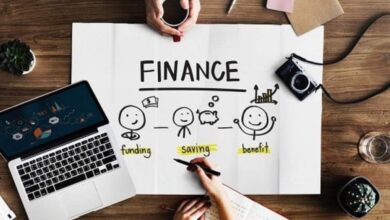“Global governments, including India, are flushing the market with liquidity. They are trying to avoid a depression and money will find its way to various investments, including investments in startups,” says Nitin Singh during a conversation with YourStory Founder and CEO Shradha Sharma.
There is no doubt about the fact that the impact of COVID-19 has been profound on the Indian, as well as the global economy. And the crisis is nowhere close to being over. Nitin believes that economic recovery is still 18 to 24 months away.
“Nobody knows how the recovery is going to happen. The economic impact has been severe. This quarter is going to be bad for everybody,” he says. A thought echoed by most experts tracking the economy closely.
Although 55 percent of the economy is still working, it is not enough for it to bounce back. What has impacted the economy the most is the fact that the demand has dropped while the supply exists. Amidst the COVID-19 crisis, seven crores of the total of 17 crore migrant workers in India have gone back to their hometowns, according to blue-collar lifecycle management startup Betterplace. Most consumer brands are of the opinion that the supply chain will come back to normalcy over the next five months.
The IMF (International Monetary Fund) estimates that the $82 trillion global economy may shrink by three to four percent, this year. The Indian economy is also expected to see a similar shrinkage.
Where to invest capital amidst the pandemic
Nitin strongly believes that before investing anywhere it is very important to assess if there is adequate money to meet unforeseen situations.
“Experts tell you where to park your wealth. But I think this is a time to reassess your financial position. Do ask yourself if you have enough money to meet any unforeseen circumstances. You need to have three to six months of liquidity if you are an individual.
“It is very important to look at funds that are of quality, that offer liquidity and safety. As for the industry, the people who win will be those who have sound business models. They will be industry leaders and they will scale after the economy recovers,” he says.
Nitin advises that mutual funds are a good investment option, albeit with volatility and clarifies that only a few fixed-income funds are in trouble. AAA grade (the highest rated) stocks are good investment bets, he adds.
“Look for quality and market leadership within the sector you want to invest in. A lot of stocks were overvalued and have now seen a correction. If people have to invest now they have to do with a staggered approach.
“All of us know that first-quarter results will be really bad. There is a worry about debt funds, but, remember only five percent of the money is in credit risk, everything is in highly liquid govt securities and corporate bonds. There are two critical pieces: don’t take decisions that erode capital, make sure capital is allocated for growth,” Nitin advises.
The startup bets
Nitin is placing his bets on brands with a strong digital presence and the overall health and wellness sector to do well amidst the pandemic.
“Going forward we will see the rise of health and wellness as strong sectors. We also believe that there will be strong consumer brands going forward with a very strong digital presence. We believe that this industry will grow because customer preferences are changing and these brands are creating strong business models. The big distinction that will be made is the quality of the founders and the brand that they have built. “
He says, investors will primarily look at the unique value proposition of the startup and how a founder is coping with changing consumer behaviour, before placing their bets.
“Finally, investors will see how founders manage the cash and will place more emphasis on focus and the desire for profitability. There is a lot of capital in venture debt and equity over the next five years, there is a lot of dry powder which will come into the startup world and there is an increased interest from domestic investors about the startup’s world,” according to Nitin.
Nitin’s parting advice for entrepreneurs is to build character, look at the value proposition and create a sound business model that generates cash flows.
“Seek advice from people who can help you make the right decisions. Be aggressive in what you do professionally. There needs to be clarity of purpose and good entrepreneurs have that clarity. I also advice individuals to have an emergency nest egg, which is important in today’s volatile world. You should not have the stress of money. Look at what is essential and what is non-essential,” he signs off.
Source: Yourstory




